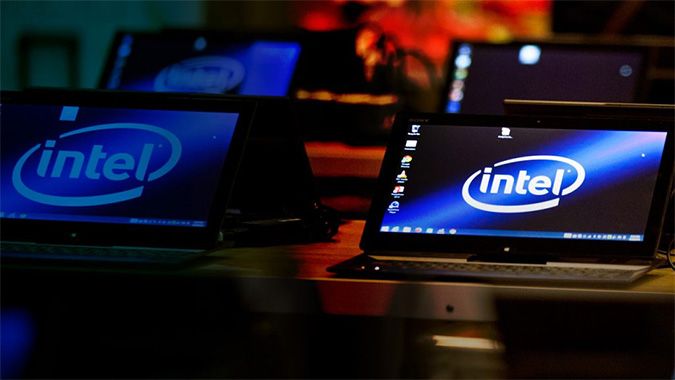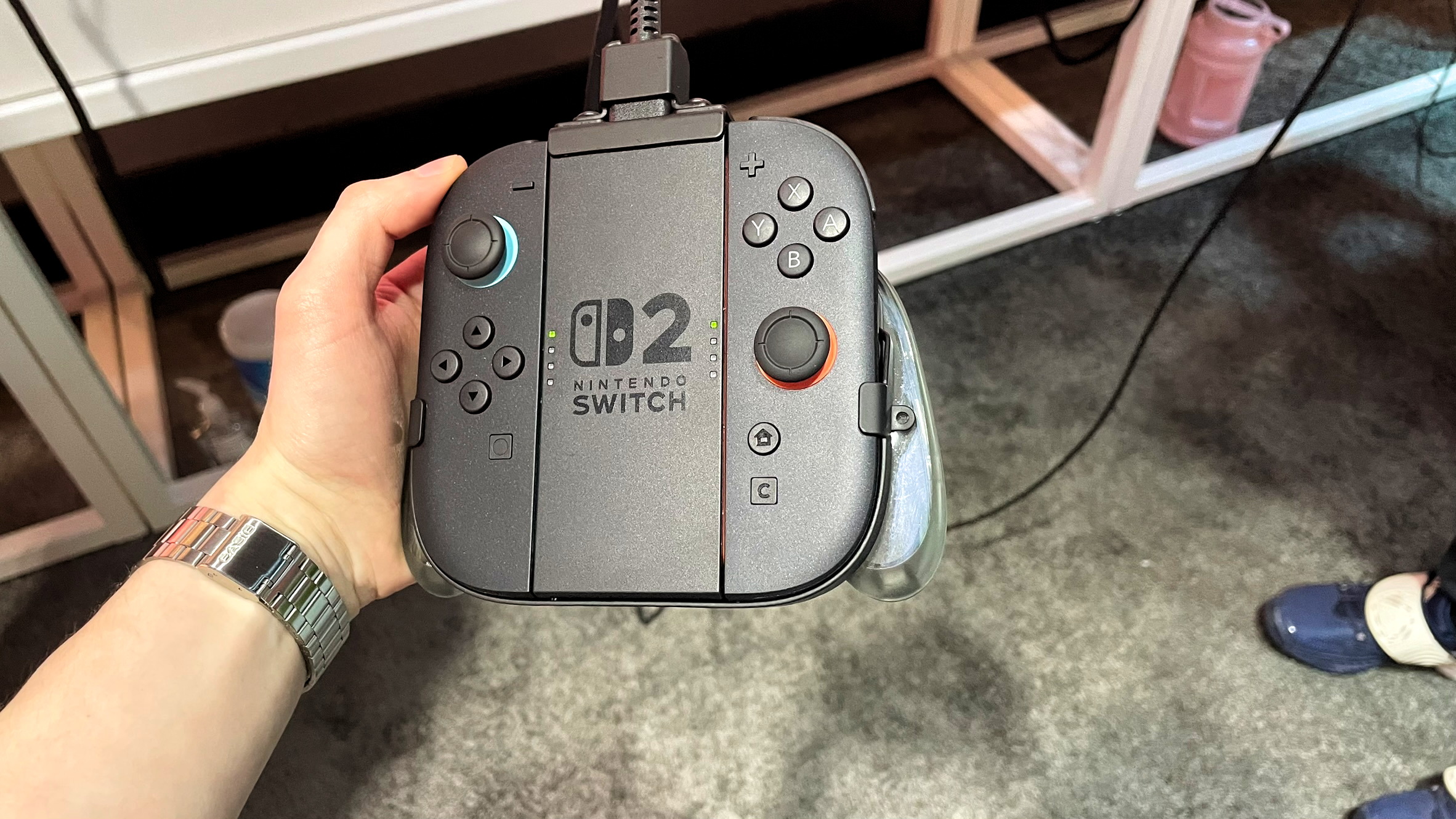Intel HD Graphics Guide
Every laptop has an integrated GPU (Graphics Processing Unit) built into its processor. And if, like the vast majority of notebooks, a computer is powered by an Intel CPU, it has some form of Intel HD Graphics or Iris Graphics on board.

If you want to play high-end games or do serious 3D modeling, you need to get a laptop with a more powerful, discrete graphics chip from Nvidia or AMD that takes over from the Intel GPU when you launch graphics-hungry programs. However, most mainstream users can get good enough performance from Intel's built-in graphics.
Depending on the Intel HD or Iris Graphics and the CPU it comes with, you can run some of your favorite games, just not at the highest settings. Even better, integrated GPUs tend to run cooler and are more power efficient. Here are some answers to your questions about Intel integrated graphics.
What are integrated graphics?
The term "integrated" graphics means that the GPU is embedded on the same die as the processor and shares available system memory. That means that at any given time, the GPU can access between 1 and 5 percent of the available memory depending on the tasks.
The main benefit that integrated graphics deliver is affordability as laptops with discrete graphics can costs hundreds more. The combined workload also means less heat output and less power usage, which can translate to longer battery life. To enhance battery life, most laptops with discrete graphics on board switch to their integrated chips when not performing demanding tasks.
Which Intel GPU do I have?
The Intel GPU you get depends on which CPU you have. We've listed some of the most common GPUs and their CPUs below. Also, if you have access to the computer you want to check, you can find the Intel HD Graphics model name in the Windows Device Manager under the Display Adapters header.
| Intel GPU Model | CPU(s) |
| Intel HD Graphics 610 | Pentium 4415U, Celeron 3965U, Celeron 3865U, |
| Intel HD Graphics 615 | Pentium 4410Y, Core i7-7Y75, Core i5-7Y54, Core i5-7Y757, Core m3-7Y30 |
| Intel HD Graphics 620 | Core i7-7600U, Core i7-7500U, Core i5-7300U, Core i5-7200U, Core i3-7100U |
| Intel HD Graphics 630 | Core i7-7920HQ, Core i7-7820HQ, Core i7-7820HK, Core i7-7700HQ, Core i5-7300HQ, Core i5-7440HQ, Core i3-7100H |
| Intel Iris Plus Graphics 640 | Intel Core i7-7660U, Core i5-7360U, Core i5-7260U |
| Intel Iris Plus Graphics 650 | Core i5-7287U, Core i5-7267U |
| Intel HD Graphics 500 | Celeron N3350, Celeron N3450 |
| Intel HD Graphics 510 | Pentium 4405U, Celeron 3955U, Celeron 3855U |
| Intel HD Graphics 515 | Pentium N4200, Core m7,-6Y75,Core m5-6Y57, Core m5-6Y54, Core m3-6Y30 |
| Intel HD Graphics 520 | Core i7-6600U, Core i7-6500U, Core i5-6300U, Core i5-6200U, Core i3-6100U, Core i3-6006U |
| Intel HD Graphics 530 | Core i7-6920HQ, Core i7-6820HQ, Core i7-6820HK, Core i7-6700HQ, Core i5-6440HQ, Core i5-6300HQ, Core i3-6100H |
| Intel Iris Graphics 540 | Core i7-6660U, Core i7-6650U, Core i7-6560U, Core i5-6260U, Core i5-6260U |
| Intel Iris Graphics 550 | Core i7-6567U, Core i3-6157U, Core i3-6167U |
| Intel Iris Pro Graphics 580 | Core i7-6970HQ, Core i7-6870HQ, Core i7-6770HQ, Core i5-6350HQ |
What's the difference between Intel HD Graphics and Iris Plus?
Intel HD Graphics are the more common version of mobile integrated graphics. You'll find some version of the chip in most laptops, even those equipped with discrete graphics. HD Graphics chips aren't built for taxing tasks like AutoCAD or playing titles like Doom, For Honor or Rise of the Tomb Raider. They can however, reliably stream video and play certain games including the ever-popular Overwatch.
Stay in the know with Laptop Mag
Get our in-depth reviews, helpful tips, great deals, and the biggest news stories delivered to your inbox.
Intel's Iris GPUs, which are marketed as either Iris Plus (current gen), Iris Pro (last gen) or just plain Iris (last gen), promise significantly faster performance than regular Intel HD Graphics. With Iris, you should be able to play some games, However, they still aren't faster than a mainstream discrete graphics chip. Unlike Intel HD Graphics GPUs, Iris has a small amount of onboard memory to help speed them up.
MORE: Which GPU is Right For You
How much Video RAM (VRAM) do Intel integrated GPUs have?
Integrated graphics don't have a memory bank sequestered somewhere. Instead they draw from the same system memory as the processor. So, if your laptop has 8GB of RAM, the Intel HD Graphics chip will take some of that capacity, often as little as 64 or 128MB, for itself. However, Intel Iris chips have a small amount of onboard eDRAM, either 64 or 128MB, that boosts performance.
The GPU's driver works in tandem with the operating system to ensure that the memory is allocated for optimal performance between both GPU and CPU. The actual limit varies and is determined by the OS and computer configurations.
Can I output to a 4K monitor with Intel HD Graphics?
If you have a laptop with an Intel 3rd Generation Core Series processor or newer, its Intel HD graphics chip can output to a 4K monitor or an internal 4K display. Considering that 3rd Gen CPUs came out in 2012, any modern laptop with a Core i3, Core i5 or Core i7 processor can go up to 4096 x 2304, which is actually a bit higher than 4K (3840 x 2160). However, laptops with Pentium, Celeron and Atom processors cannot.
How many monitors can I power with Intel graphics?
The answer largely depends on what type of output port your laptop has. If you have any modern laptop with mini DisplayPort or a USB Type-C / Thunderbolt 3 port, you can power up to three monitors at 1080p each, two monitors at 2K or one monitor at 4K. However if you just have an HDMI or VGA port, you can't power dual displays through it.
Even if you don't have the correct ports or processor, you can power three or more monitors using a USB docking station that contains DisplayPort technology. These docks use your CPU and their own chips to send video out as a USB signal.
Can I play games with Intel HD Graphics?
Depending on how demanding the game is, you should be able to play it at medium or low settings at 1080p or, perhaps, with a lower resolution. When we fired up a session of Overwatch on a Dell XPS 13, which had Intel HD Graphics 620, we were able to play at medium settings on 1080p as the system vacillated between a high of 54 fps and a low of 26 fps. On high settings, we could not hit 30 fps, the bare minimum for a decent experience. However, the same XPS 13 only managed a mediocre 28 fps on Dirt 3.
How fast is each Intel integrated graphics card?
Here's a table of recent Intel HD and Iris GPUs and their peak frequencies. The actual top frequency varies by a small amount, based on which CPU they come with.
| Intel GPU Model | Base Frequency | Max Frequency | eDRAM |
| Intel HD Graphics 610 | 350 MHz | 0.95 GHz | -- |
| Intel HD Graphics 615 | 300 MHz | 1.05 GHz | -- |
| Intel HD Graphics 620 | 300 MHz | 1.05 GHz | -- |
| Intel HD Graphics 630 | 300 MHz | 1.10 GHz | -- |
| Intel Iris Plus Graphics 640 | 300 MHz | 1.05 GHz | 64MB |
| Intel Iris Plus Graphics 650 | 300 MHz | 1.10 GHz | 64MB |
| Intel HD Graphics 500 | 200 MHz | 700 MHz | Row 7 - Cell 3 |
| Intel HD Graphics 510 | 350 MHz | 1.05 GHz | Row 8 - Cell 3 |
| Intel HD Graphics 515 | 300 MHz | 1.00 GHz | Row 9 - Cell 3 |
| Intel HD Graphics 520 | 300 MHz | 1.05 GHz | Row 10 - Cell 3 |
| Intel HD Graphics 530 | 300 MHz | 1.15 GHz | Row 11 - Cell 3 |
| Intel Iris Graphics 540 | 300 MHz | 1.05 GHz | 64MB |
| Intel Iris Graphics 550 | 300 MHz | 1.10 GHz | 64MB |
| Intel Iris Pro Graphics 580 | 300 MHz | 1.15 GHz | 128MB |
Photo credit: Intel
Laptop Upgrade Guide
- How to Tell If You Can Upgrade Your Laptop
- How to Install an mSATA SSD Boot Drive
- How to Upgrade Your Laptop’s Hard Drive to an SSD
- How to Install an M.2 SSD in the Lenovo ThinkPad T440s
- How to Upgrade the RAM on the Lenovo ThinkPad T440s
- How to Upgrade the RAM (Memory) on a Laptop
- How to Upgrade the SSD in Your MacBook Pro
- How to Upgrade Your Alienware 17’s SSD and Hard Drive
- How to Upgrade Your Alienware 17's RAM
- How to Upgrade Your Dell XPS 13's SSD
- How to Upgrade Your ThinkPad 13's RAM
- How to Upgrade Your ThinkPad 13's SSD
- How to Upgrade Your ThinkPad T460s' RAM
- How to Upgrade Your ThinkPad T460s' SSD

Sherri L. Smith has been cranking out product reviews for Laptopmag.com since 2011. In that time, she's reviewed more than her share of laptops, tablets, smartphones and everything in between. The resident gamer and audio junkie, Sherri was previously a managing editor for Black Web 2.0 and contributed to BET.Com and Popgadget.
